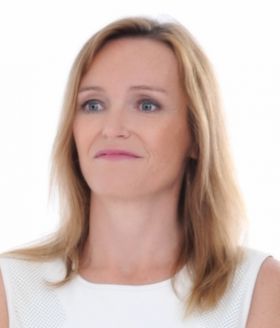Course Overview
THIS COURSE IS CLOSED AS OF 30.06.2017!
IF YOU WANT TO ACCESS THE CONTENT OF THIS COURSE PLEASE GO TO THE EMPLOYID ACADEMY at http://mooc.employid.eu/the-changing-world-of-work/
Do you want to be prepared for the challenges of the changing labour market?
Do you want to better understand and apply skills related to emotional awareness, active listening, reflection, coaching skills, peer coaching and powerful questioning?
Do you want to explore tools for handling Labour Market Information (LMI) and the digital agenda?
This course has been devised as part of the European EmployID project, for Public Employment Services (PES) practitioners and careers professionals. Our 5 lessons will run over a period of 6 weeks with an estimated workload of 3.5 hours per week; the total workload is expected to be 17.5 hours.
What to expect in each Week?
The first lesson in week 1 is a short introduction to the course:
The content starts in Lesson 2; you can go straight there from this link and then find the different units by clicking NEXT at the end of each unit or by following the links below:
Week 2
Intro to Coaching and Peer Coaching
Week 3 and 4
Unit 1 International Perspective
Unit 2 The Future of Work and Skills
Unit 3 Digital Jobs, Digital Workforce
Unit 4 Digital Jobseekers, Digital Employers
Unit 5 Reflection and Further Resources
Week 5
Intro to Labour Market Information
Week 6
Unit 1: Reflection Tools & Techniques
Unit 3: Other Reflective Tools & Techniques
Unit 4: Facilitation & Moderation of Reflection
Unit 5: Reflection on what we learned so far
Learning Objectives
The course gives you the opportunity to:
- make sense of how the world of work is changing
- recognise the importance of the digital agenda
- understand coaching techniques
- recognise the importance of Labour Market Information (LMI) and Sectoral Knowledge
- share knowledge, ideas and experiences with colleagues
- reflect individually and collectively on what you have learned
- think about how careers and work identities will change in future (including your own!)
We hope that you enjoy the course. You can use the "conversations" on each step to leave your feedback on the course content and to share your thoughts with others.
Outcomes
Participants are expected to actively participate in the course via discussions and reflection; the course is designed as a collaborative learning effort.
The course is offering text and pre-recorded videos each week together with work-based activities for the participants, opportunities for individual and collective reflection, discussions of key topics.
Participants will get first insights into the presented topics and gain awareness for the changing world of work. They will be able to apply methods and strategies for coping with the challenges of the labour market in their daily work.
More in-depth studies of the individial topics will be offered to follow-on.
Certification and Additional Info
Open Badges
Use of content and licenses
The content of this course is subject to the Creative Commons copyright licenses: 
Course Structure
- Lesson 1 - Maximise your MOOC experience - top tips
- Lesson 2 - Introduction: the changing world of work from your professional perspective
- Lesson 3 - Coaching & Peer Coaching
- Lesson 4 - A New Digital Era
- Lesson 5 - Labour Market Information (LMI)
- Lesson 6 - Reflections and further options
Teacher
Barbara Kieslinger
Dr. Barbara Kieslinger is the project coordinator of EmployID, a European project on professional identity transformations in Public Employment Services. Barbara holds a PhD in Livelong Learning from the Alpen Adria University Klagenfurt. Her research work is currently focusing on social networking in educational contexts, the use of of social media in knowledge transfer, innovative pedagogical approaches and the relation between technological and social innovations in the field of education. Barbara has extensive experience in international research management and networking activities. She has coordinated many eLearning project, has taken a leading role in related Networks of Excellence and forms regularly part of conference program committees, such as EC-TEL, iKnow or JTEL.




